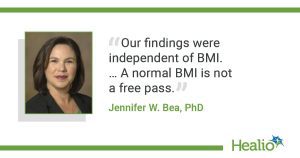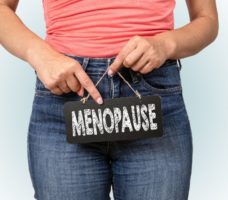It’s not uncommon to see women gain considerable weight during the menopause stage of their lives. As you advance in age, you might find out that it becomes easier to maintain your body weight.
In fact, in some cases, menopausal women tend to get obese. This condition is most unfavorable for the average woman undergoing menopause, and the need to lose some more weight becomes pressing.
Gaining weight during menopause is a symptom of menopause that you can’t avoid, though. It’s just one of the downsides of aging, but you surely can manage it to a minimum with the right lifestyle habits and healthy dieting.
Controlling your weight during menopause becomes of utmost importance if you want to maintain shape and stay fit and healthy. As a woman undergoing menopause, you must implement ideal fitness care for your body and maintain good body weight to avoid obesity.
Now, for women who are already obese, fat, or have just gained a considerable amount of weight since menopause onset, you should already be putting your body through weight loss activities to burn excess fat.
However, the process is seldom easy, and there are always hurdles to scale through and challenges you to have to surmount in losing weight as a menopausal woman, especially for postmenopausal women that are obese.
As a result, many women in menopause tend to give up on trying to lose weight and adapt to the new lifestyle conceding that it’s too difficult and consumes a lot of their precious time.
But that shouldn’t be the case; with the right tips and know-how, you can face these challenges and overcome them and achieve that healthy body weight you want.
Let’s highlight some obstacles menopausal women face and how you can overcome them.
Top 7 Weight Loss Obstacles Menopausal Women Face
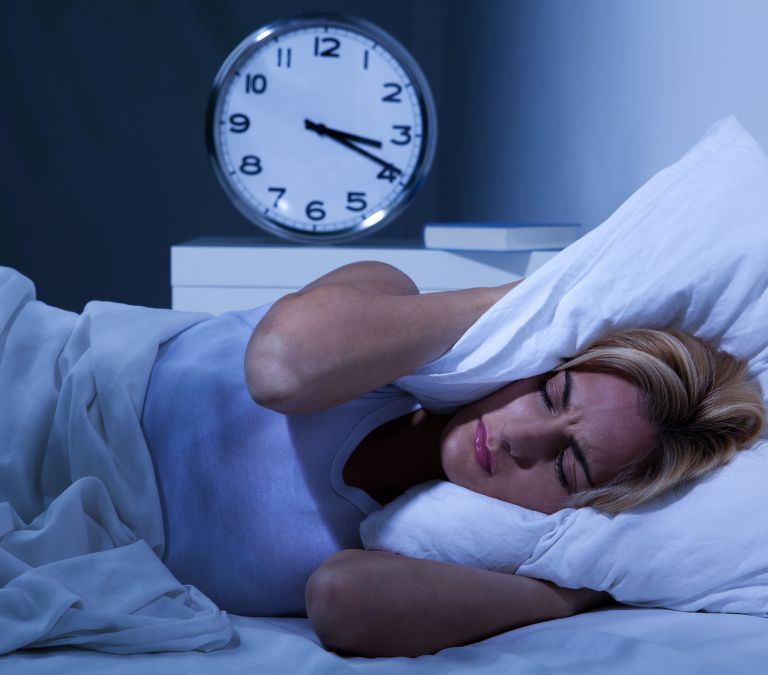
- Your metabolism slows down during menopause.
At this age in your life as a woman, your body doesn’t burn as many calories as it consumes. That’s because your metabolism generally slows down a lot.
So, even if you successfully burn about 200 calories through exercise or any other means possible, you can easily add back the calories you lost if you eat foods with high-calorie content.
At this age, you’d be less involved in kitchen tasks and other home activities and tend to eat more food and maybe even consume alcohol.
These are closely associated with you gaining weight and increasing your body’s calorie content. And since you’re not doing many physical activities, your body tends to not burn all those calories that quickly – even with exercises, you might only reduce the rate of weight gain.
Solution
To cut back on these aspects of your body’s metabolism that makes you gain weight a lot, you can try to reduce your patronage of restaurant food packages and takeouts to control the rate of calories.
It would help if you also regulated how frequent your eating is and how you time it all.
- Inadequate sleep/Insomnia causes more weight gain.
One of the most common cases associated with menopause is lack of proper sleep or insomnia. The menopause period is characterized by the changes associated with aging women’s bodies towards the end of menstruation. These changes include several body adjustments that inhibit sleep.
The North American Menopause Society stated that this transition phase could last for quite a while. This sleeplessness is merged with tiredness and loss of motivation. Sometimes it even leads to mental issues.
All these effects will lead to the addition of weight in one way or the other. You’d have to eat while awake, be unable to work out, etc. High-quality sleep is one of the routines that will greatly help weight loss.
A study has shown that our hunger hormones, “ghrelin and leptin,” are affected by sleep. When there is inadequate sleep, these hormones are impaired and might not function as they should. Without the required sleep, your appetite will greatly improve, and we all know that.
Solution
Update your sleep routine to sleep better and fight weight gain.
Whether or not you’re trying to lose weight, sleeping or eating late is a very bad habit with many disadvantages. For a woman in menopause, it is recommended that you close ties with your kitchen and brush before 8 pm.
Doing this should reduce the chances of you eating after that time. We should note that eating just before sleep is also an unhealthy habit that would make you gain extra pounds. Eating late also affects peaceful sleep.
Another way to enhance sleep is to sort out your lighting. You could turn off the light in your room shortly before you sleep. You can also wear glasses that can neutralize light’s effect on your sleep. Certain lighting has amber settings that are wholly suitable for sleep.
Whatever your measure, your main aim should be to maintain a sleep time of about eight or more daily. One thing you should note is that the benefits of sleep are innumerable. So it’d be like killing 2 birds with a stone for you.
- Hormonal changes during menopause lead to more weight gain around your abdomen than around your hips and thighs.
Before during, and after menopause, your estrogen levels begin to fluctuate and then decline, and your metabolism slows, among other things, making it more difficult for you to lose weight, particularly around your middle. And aside from being annoying, belly fat is also unhealthy.
A study published in 2019 discovered that weight gain in the abdominal region during menopause (even if you didn’t gain weight elsewhere) puts you at the same risk for cardiovascular disease as being obese and having a thick waistline.
Solution
Ever heard of Tai chi? Maybe not. Perhaps you might have seen a group of people dressed weirdly in a park taking routines together or not. Either way, as funny as it might seem, it is very effective.
This routine of gentle movements that are mostly meditative has helped countless middle-aged or older women reduce weight around their abdomen; interesting. Well, that’s not all.
In June 2021, a study on about 60 obese individuals discovered that about 98% of them (aged 45 and above) who underwent the tai chi routine burnt all their belly fat within 13 weeks. The other 2% didn’t finish their routine.
Although more soothing and “soft,” Tai chi still has the same effect as other traditional exercises. Sometimes it is even more effective. It is a great substitute for all other strenuous exercises for middle-aged or old individuals. It does the trick but with lesser stress. And above all, it reduces stomach fat more than any other exercise method.
- As the individual ages, the body mass reduces while fat increases, leading to extra weight.
Menopause is associated with several physiological changes, including loss of skeletal muscle mass. So, it calls for extra calories to be burnt and little muscle mass to aid the exercise process that should counter it.
During menopause, there is usually a loss or decrease in skeletal muscle fibers, and this is due to the estrogen deficiency that comes with menopause. This decrease in muscle fiber will lead to decreased strength and a change in function.
Although the entire cause process of declining muscle fibers is not fully understood, it is known that the micro RNA responsible for the simulation of muscle fibers is inhibited due to estrogen deficiency.
Solution
Physical activities and exercises can greatly increase the increased fat during menopause. These strength-building routines can help you burn excess fats and lose excess pounds. The way this works is that strength training and exercise build muscles. These muscles are built at the expense of fat and calories, making you lose weight.
Your health, age, and vulnerability to infections are great determinants of the kind of exercise you should indulge in. Healthy women in menopause will be fine with moderate routines like brisk walking for at least 20 minutes a day or strenuous activities like jogging and running, depending on your strength. But a person with a health condition should not do any overly strenuous exercise.
If you’re healthy enough, exercises that build strength should be done at least 7 times a month. To lose weight and enhance fitness, you must be motivated, dedicated, and willing to sacrifice your time and energy.
- Genetic factors
Genetic factors might also play a role in menopause weight gain. If your parents or other close relatives carry extra weight around the abdomen, you will likely do the same.
Genes are traced to bypass hormones, and it has been discovered that Reprimo, a gene, is involved in regulating temperature. This temperature change is said to affect body weight too. So, menopausal weight gain is not just limited to meal and hormonal changes but genetic factors too.
If your weight gain is linked to your gene, it cannot be avoided, although it can be controlled (to the most minimal weight). So, it may mean many preventive measures, and dieting might not work for you, but there’s still hope, so hang on!
Solution
Based on research, here’s a list of options that would greatly aid your journey to lose weight.
- Reduce your sugar intake: It is not new that the more sugar we consume, the more calories we have to burn. About 400 calories are added daily from the daily sugar intake of a Caucasian diet. Most of these calories come from sweets, candies, ice creams, soft drinks, etc. So limiting your intake of these substances will help you greatly.
- Limit your alcohol intake: Many people become obese from their excess alcoholic intake. You’d be doing yourself a big favor by cutting down the level of alcohol you consume.
- Surround yourself with the right group of people: Sometimes, the weight loss journey has many emotional hurdles. Sometimes we get discouraged and feel like giving up, but when you surround yourself with the right clique, their positivity and encouragement will see you through times of discouragement. People who understand can relate and sometimes are in the same situation as you will help push you to the next level of your development.
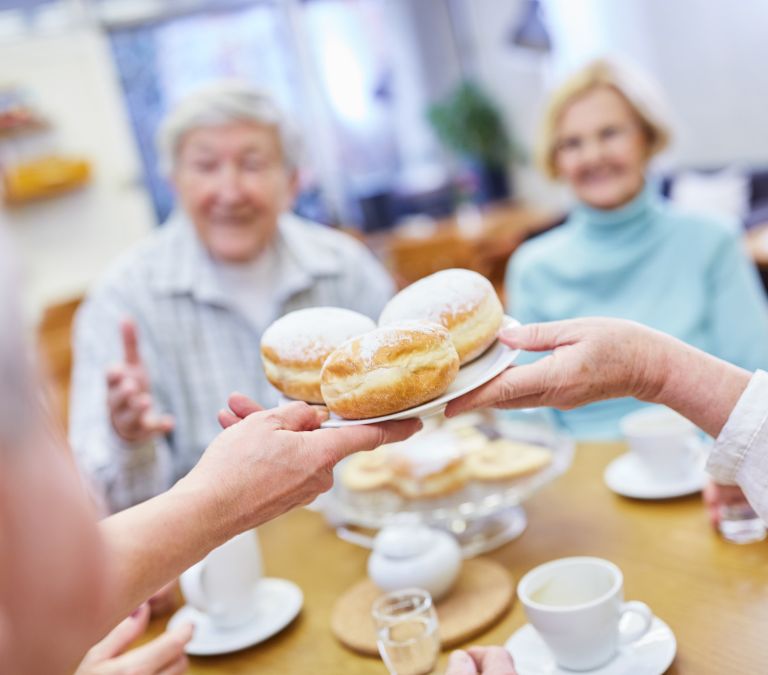
- The age factor or lack of motivation
Since most women hit menopause as they’re getting older, it is more difficult to exercise the way they should, especially if they haven’t adopted the lifestyle. Hence, exercising might seem somewhat impossible for them to carry out.
But, thanks to countless organizations worldwide, many women are empowered and motivated enough to eventually push through their weight loss journey and claim their self-confidence and self-love.
Solution
If you want to burn belly fat, we recommend that, above everything else, you try to exercise regularly. It might be the most effective way for you. But this is not as easy as it sounds because sometimes you’d have to burn as many as 400 and 500 calories daily or weekly to overcome the menopausal weight gain.
As I said, this is not an easy task at all. You can tackle the two main hurdles by surrounding yourself with people with the same needs. This set of people will not only understand you, but you guys will help each other achieve your goal.
- Stress induces weight gain leading to weight loss.
A great relationship between stress and fat leads to added weight. Fat can make you stressed, and stress can make you fat; that’s how it works. I call it the stress-fat connection.
Increased stress leads to increased cortisol levels, which, in turn, leads to fat accumulation, especially around the belly region.
What happens is that the stress hormone known as Cortisol, known as the stress hormone, stimulates the liver to produce and release more blood sugar. This sugar, when stored as calories, will increase weight. When converted to energy, it stimulates Cortisol and increases the body’s energy. This excess energy often leads to stress too.
Solution
There are a lot of routines and possibilities you can adopt to affirm a positive and stress-free life.
You can do this by simply trying to relax. Different relaxation techniques might help. You could do things that you enjoy, like listening to music or going on a tour. Make out time to take care of yourself. You could go for a massage, spar, meditation, or yoga techniques. Anything at all that can keep you calm and relaxed will be okay.
Why Women Gain Weight During Menopause
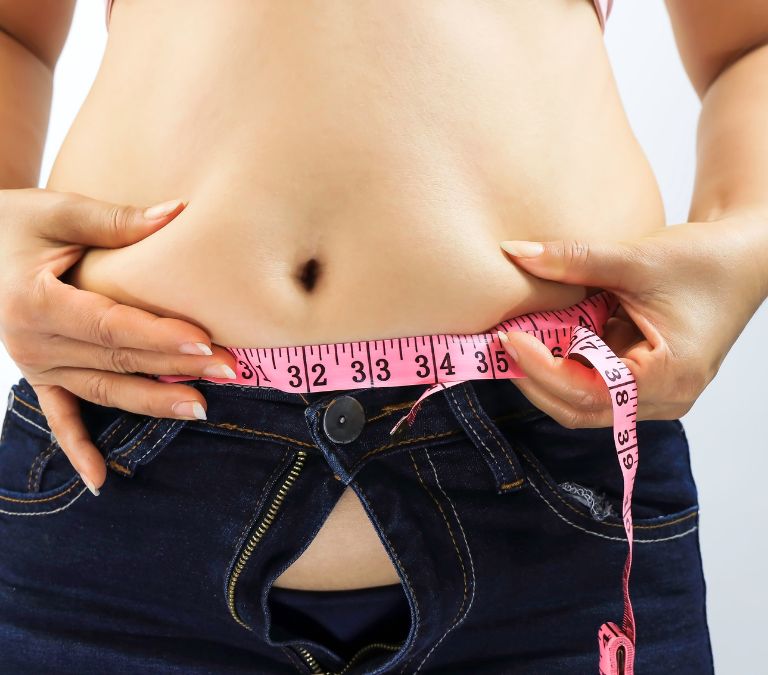
Many people ask this question because some think weight gain during menopause results from the lifestyle before menopause. Well, this is not accurate. Different factors come into play, and although your lifestyle has a role, it is just one of the factors.
One of the major factors that lead to the added weight in menopause is the hormonal changes linked to menopause. Hormonal changes alone do not lead to weight gain. It depends on other factors like aging, lifestyle, diet, and genetic factors.
These events accustomed to menopausal weight gain are looked into more detail under the following categories.
Let us examine events accustomed to menopausal women.
- Body changes in menopause
As we age, our muscles decrease in bulk, and our metabolism slows down. These changes can contribute to weight gain around the time of menopause.
These changes may affect a woman’s body image, making her look more obese and sometimes affecting her self-esteem and increasing her risk of depression and sexual difficulties. Taking steps to manage the symptoms of menopause can help.
- Oestrogen and fat distribution in menopause
A change in hormonal levels, mostly estrogen, affects fat distribution and leads to added weight.
As estrogen levels drop, women in menopause begin to add weight. It is so because as estrogen drops, fat masses are added.
This fat is another issue as it is stored mostly in the stomach, making them uncomfortable and sometimes changing their figure or shape. Studies have shown that lack of estrogen leads to unwanted fat, which is undisputed.
- Other contributors to weight gain in menopause
Aside from the declining levels and body changes, other factors that can induce weight gain during menopause include age, lack of physical activities and exercises, family history or genetics, use of certain anti decrement or antipsychotic drugs, and the number of childbirth, and feeding habits, amongst others.
Top Exercises Menopausal Women Can Consider

An effective exercise is one of the most effective methods of battling weight loss, be it menopausal or premenopausal. There are various exercise schemes that an aging woman can carry out without the risk of breakdown or injury. Below are some highly recommended exercises to help you lose weight during menopause.
Losing weight is never easy. According to research, 95% of people who diet and lose weight will gain all of the weight back in less than one year. It is so because so many factors contribute to gaining weight. And although there are a lot of measures to reduce weight, one of the most effective by far is exercising. Below are the top exercise routines that would help you burn calories.
- Strength training
The declining hormonal level during menopause is greatly tackled by increasing your resting metabolic rate and muscle mass. You can do this by improving your strength and regular workouts.
Strength training is done at least 3 times a week to help burn those calories accumulated during menopause. Your health will also be enhanced by miles if you are consistent, and you’d also notice an improvement in your muscle strength, bone density, and body metabolism.
You could enroll in a gym class or get the equipment and home and hire a gym instructor. Either way, you should jot without guidance to avoid injuring yourself.
- Cardio Exercise
Cardio exercises affect heart rates, making the heart beat faster and aiding blood circulation.
During menopause, these cardiovascular exercises help maintain the condition of the heart for women of that age, which in turn burns fat as they exercise. Also, as hormone levels change in menopause, the routine help to reduce weight gain.
Also, endorphins are released during cardio exercises. These endorphins help relieve stress and anxiety, fulfilling the individual. Stress relief helps to reduce the cortisol effect, and hence weight gain is reduced or prevented.
You could casually walk, jog, swim, cycle, or even row machines for 15 minutes or more. You could also enroll in professional gym classes with proper cardio instructions.
- Yoga and meditation
Yoga might not influence weight loss directly, but it helps menopausal women and other individuals sleep well. As stated in the earlier paragraphs, insomnia leads to massive weight gain, and good sleep helps us lose weight. So it is safe to say yoga prevents weight gain related to insomnia.
Every individual has a peculiarity in anatomy and emotions; this means yoga, stress relief, and meditation will work differently for different people. So, you should practice yoga, meditation, and other techniques and adopt the one that suits you better.
- Dancing
It is entirely safe and effective to do exercises that are not strenuous and stressful. Exercise can be fun, too, so you shouldn’t always punish yourself. Dancing can be a very effective method.
If these whole strength-building exercises aren’t your thing, dance can do the trick for you. It doesn’t just burn calories directly, but it reduces stress and helps in stress-related weight loss. The dancing options are not limited at all. All you need to do is choose a dance genre that suits you best.
Dancing is not just an exercise but also a therapeutic process that helps menopausal women in more than one way. Dancing can do everything from body composition to overall functional fitness and emotional balance.
Frequently Asked Questions
Does menopausal weight gain go away on its own?
Menopausal weight doesn’t go away on its own. Although, certain intentional menopause measures can help you return to shape.
How long does menopause last?
Usually, menopause can last up to 8 years and about 15 years for someone. The duration depends on various factors such as the age it begins, lifestyle, race, and so on.
Is weight loss more difficult for menopausal women?
Based on research and reviews, women going through menopause find it more difficult to lose weight for various reasons like hormonal change, lesser energy, motivation, insulin resistance, etc.
How long will it take me to lose weight during menopause?
Well, this depends on the number of pounds you intend to lose and how dedicated and serious you are. Some people have lost more than 400 pounds within 6 months, some within 24 months, so it all depends on you.
Can I stop the hormonal weight gain?
By sticking to healthy dietary choices, managing stress, increasing exercise, and limiting alcohol and other bad habits, one can avoid or reduce the effect of hormonal weight gain.




